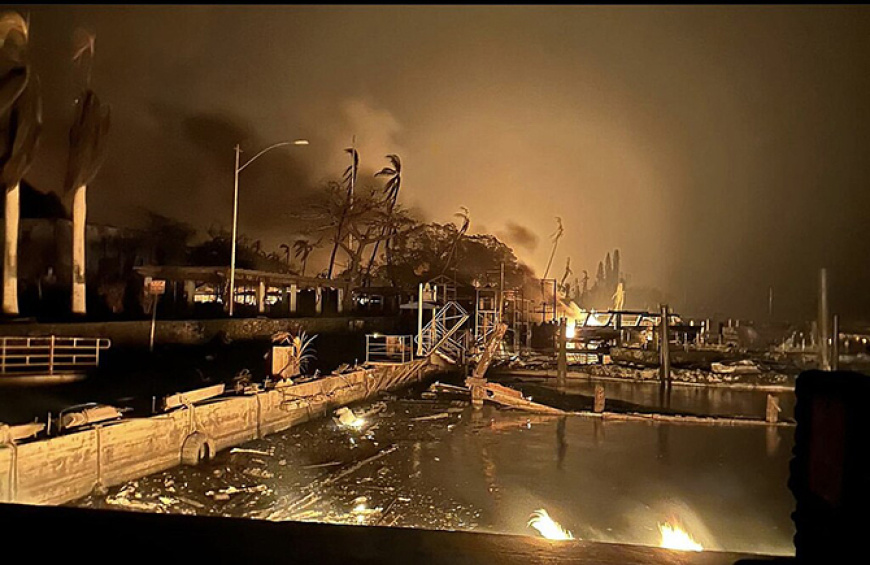
 back to all news
back to all news
Hawaii fires: U-M experts available to comment

EXPERTS ADVISORY
University of Michigan experts are available to discuss the Maui wildfires—which are among the deadliest in U.S. history—and their aftermath.
Sue Anne Bell, assistant professor at the School of Nursing, is a nurse scientist and family nurse practitioner with expertise in disaster response, community health and emergency care. She said the need of older adults should be a primary focus—along with other more vulnerable residents—as efforts to shelter and care for survivors unfolds.
“The images from Maui are beyond frightening, showing that climate threats are no longer about what might occur, but about what is happening now,” Bell said. “What is critically important now is to support the people of Maui as the emergency response is in full swing.”
Efforts should focus on the immediate and long-term recovery needs of affected communities, she said.
“Disruptions and access to health care and necessary supports are a critical need to be addressed in inclusive disaster management,” Bell said. “Having a system in place and effective implementation are critical to preventing the loss of more lives.”
Contact: [email protected]
Jonathan Overpeck is an interdisciplinary climate scientist and dean of the School for Environment and Sustainability. He is an expert on climate and weather extremes, sea-level rise, the impacts of climate change and options for dealing with it. He served as a lead author on the authoritative Intergovernmental Panel on Climate Change 2007 and 2014 reports.
“We’re seeing whole towns burn more and more now, and the No. 1 reason is climate change, primarily the extreme drying effect that record warming is having in creating bone-dry fuel for fires,” he said.
“Decades ago, climate scientists predicted that wildfires would worsen as the planet warmed up, and we’re seeing this around the globe now. The destructiveness of the fires is obviously the main growing risk, but the smoke is also toxic and something that’s worsening as well. It won’t stop getting worse until we halt climate change, and to do that we need to stop using fossil fuels.”
Contact: [email protected]
Roshanak Mehdipanah, associate professor of health behavior and health education at the School of Public Health, is director of Housing Solutions for Health Equity and co-lead of Public Health IDEAS: Creating Healthy and Equitable Cities. She can speak to the health effects of housing displacement on a personal level and on the environment that may form as destroyed homes and property are redeveloped, potentially bringing further harm to displaced residents.
“The uncertainty and anxiety associated with housing loss is detrimental to one’s health,” she said. “What is happening in Maui is devastating for not just individuals but also communities, as there are concerns regarding mass displacement in the weeks to come if relief is not provided quickly enough.”
Contact: [email protected]
This media advisory originally was posted on the Michigan News website.

